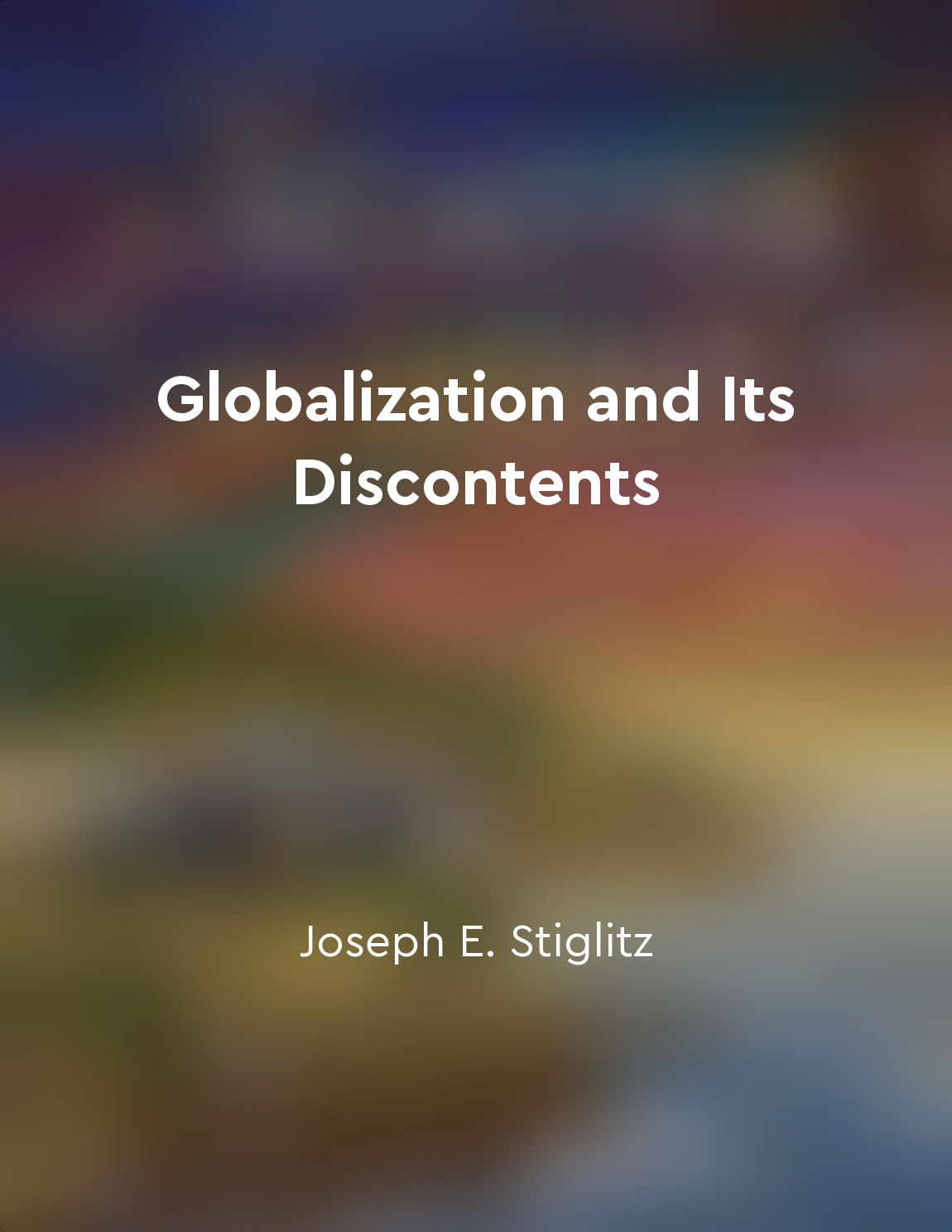Government should not interfere with the economy from "summary" of The Road to Serfdom by Friedrich August Hayek
The idea that government should not interfere with the economy is a central theme in The Road to Serfdom. According to Hayek, when the government starts to intervene in economic matters, it sets in motion a series of unintended consequences that ultimately lead to a loss of individual freedom. One of the main arguments against government intervention in the economy is that it undermines the price mechanism. Hayek believed that prices are the signals that coordinate the actions of millions of individuals in a market economy. When the government tries to control prices or production, it distorts these signals and leads to inefficiencies and shortages. Another danger of government intervention, according to Hayek, is that it concentrates power in the hands of a few individuals or bureaucrats. This concentration of power can easily be abused and lead to authoritarianism. Hayek warns that even well-intentioned government interventions can have unintended consequences that erode individual liberty. Hayek also argues that government intervention in the economy often leads to a "slippery slope" where more and more control is exerted over people's lives. He believed that once the government starts to regulate one aspect of the economy, it inevitably leads to further regulations and restrictions on individual freedom. In Hayek's view, a free market economy is the best way to ensure individual freedom and prosperity. He believed that when individuals are free to pursue their own interests and engage in voluntary transactions, the overall wealth of society increases. Government intervention, on the other hand, stifles innovation and restricts individuals' ability to make choices for themselves.- Hayek's argument against government interference in the economy is based on the belief that individual freedom is paramount. He believed that when the government tries to control economic activity, it undermines the basic principles of liberty and leads to a society where individual rights are subordinated to the whims of those in power.
Similar Posts
Cultural values influence economic decisionmaking
The idea that cultural values play a crucial role in shaping economic decision-making is a fundamental concept in the study of ...
Competition encourages businesses to improve products and keep prices low
Competition in the business world serves as a driving force for companies to constantly strive for improvement. When businesses...
Economic development varies across regions
The concept of economic development varying across regions is a fundamental reality of the modern world. Different areas of the...
Inflation and unemployment major concerns
Inflation and unemployment are two major concerns in the field of macroeconomics. Inflation refers to the general increase in p...
Market failures can lead to government intervention
Market failures occur when the free market system does not allocate resources efficiently, resulting in a misallocation of good...
Economic liberty is a cornerstone of a free society
The preservation of a free society depends fundamentally on the widespread recognition that economic liberty is an essential bu...
Social welfare programs can lead to dependency
Social welfare programs, while well-intentioned, can inadvertently create a cycle of dependency among individuals who rely on t...

Climate change is a global challenge that requires international cooperation
Climate change is a pressing issue that transcends national boundaries. It is a problem that affects every country on the plane...

Economic indicators track performance
Economic indicators are essential tools that economists and policymakers use to gauge the health and performance of an economy....

